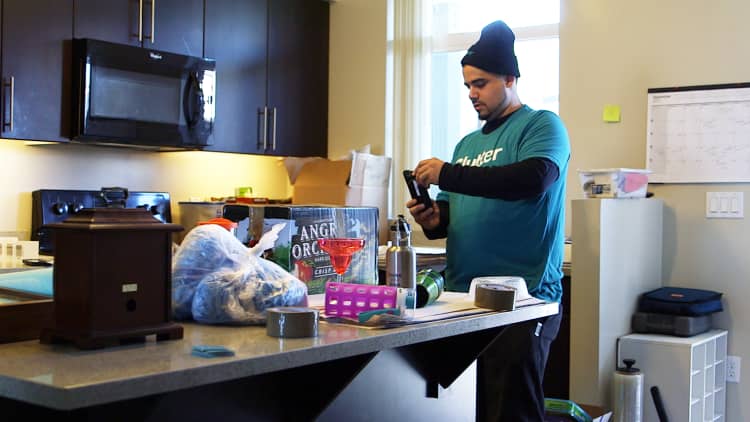Clutter is using technology to help you clear space in your home -- without getting rid of prized possessions.
Traditionally, storing and moving stuff is a hassle. It can be hard to find and get to an available storage unit when you need one. On top of that, users often feel anxiety about the security of their packed and stored items, and frustrated with the long-term costs of self-storage.
Through Clutter's app or website, users can have their items picked up, packed up (if they're not packed already) and delivered to storage, within a day or two of booking.
Movers arrive with packing materials, and then photograph and catalog every item or box they handle. Users pay a slightly higher rate for more detailed record-keeping.
Later, if a user wants an item pulled from storage, they use the Clutter app or site to have it delivered back to their home "on-demand."
Pricing varies, but a plan for decluttering one apartment in San Francisco starts at $430 and can run to nearly $1,000. Clutter launched its service in 2015, and is now operating in Chicago, Los Angeles, New Jersey, New York, San Diego and San Francisco.
So-called "mobile storage" services like Clutter's comprise a bigger and bigger piece of the self-storage business each year, according to IBISWorld research. The firm forecasts that the self-storage industry will generate $29.9 billion in revenue in the U.S. next year, with mobile storage contributing about $8 billion.
The company has raised $96.3 million in venture capital to-date and plans to expand to 50 cities across the U.S., soon. Investors in Clutter's most recent, $64 million series C round of funding included Atomico and Sequoia Capital, among others.




